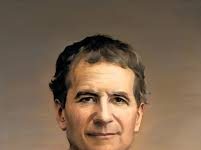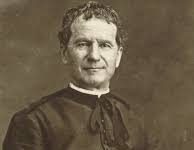You belong to your father, the devil, … for he is a liar and the father of lies. John 8:44
Thomas J. DiLorenzo is a libertarian professor of economics at Loyola University, Maryland. Some of his earlier works were highly controversial, especially in light of his attempt to debunk certain myths about Abraham Lincoln. The Problem with Socialism (2016) is one of his most recent and highly praised works. Historian Thomas E. Woods suggests anyone should “Dance on socialism’s grave by reading this book.” The bigger the lie, the bigger the tombstone to dance upon. There are lies, but then there are socialist lies. In DiLorenzo’s book, it may be said, one can find plenty of whoppers. Here are just ten of them.
First lie … socialism is benevolent
If socialism were benevolent, that at least would be in its favour. But it’s malevolent. The most spectacular experiments with full-blooded and violently enforced socialism in the last hundred years were conducted by the Soviet Union, Germany, China, Cuba, North Korea, Argentina, Africa, the Islamic countries, and more recently, Venezuela: all utter failures with a pathetic record of achievements and hideous violations of human rights. Anyone who knows history, knows this. The sad fact is that young Americans today are ignorant of history because their teachers are also ignorant. Many academics today, heirs to the fallacies and influence of the socialist philosopher of education John Dewey and others, are filled with a messianic mission to pass on their delusions of utopia to the next generation. This is certainly reflected in recent surveys demonstrating that more young Americans approve of socialism than of capitalism. Just fifty years ago most people could not see this radical conversion to socialism coming any more clearly than they could see the coming of same-sex marriage. These two sea changes in both economic theory and sexual morality are connected by an obvious thread of logic: everything new is good and true; everything traditional is evil and false. (It should be no surprise to anyone that these two development have been opposed vigorously by the oldest institution in the world, the Catholic Church; and that the Church has come to be viewed by many so-called progressive socialists as their arch-enemy, to be vilified and shamed for their traditional views by every means possible.)
Second lie … socialism is logical
Socialism has always been destructive of individual rights in order to secure the rights of society at large. The most basic of economic rights is the right to enjoy the profits of one’s labor. When these profits are forcibly diminished by taxation in order to provide funds for the collective needs of society, the profit motive itself is diminished; one’s efforts are diminished; and the products of one’s labours are diminished. DiLorenzo documents this problem in the early American colonies when a form of socialism was imposed on the farmers and they collectively died of mass starvation both in Virginia and Massachusetts. The phenomenon of mass starvation also occurred in Russia and China under Stalin and Mao Tse Tung. People must be given a motive to work. Seizing the fruits of their labours on the pretext of wiping out all need and want does precisely the opposite of what the seizure is supposed to do: it creates more want and need than ever.
At the heart of socialism is the assumption of central planning by government agencies who are supposedly endowed with the intelligence and talent to make economies grow. But this is a gross fallacy. Economies grow by an invisible law of supply and demand, and that law is rooted in the fact that the motive for human work is essentially to feed and provide for the self, not for others; yet the consequence of working for the self inevitably contributes to the welfare of others when others are also motivated by the same principle. But these forces at work must be free, not centrally controlled by a bureaucracy that has no knowledge and makes no serious contribution to the work involved (not to mention the well known greed of government planners who are tempted to look out for themselves by robbing the public till). DiLorenzo then cites Robert Heilbroner, a socialist economist who had spent thirty years defending socialism, and who finally admitted that government control of the economy was a recipe for disaster.
Third lie … socialism is the great equalizer
The final objective of socialism is economic equality. The assumption is that those who make more must share their wealth with those who make less. Lacking a voluntary system of sharing (other than by way of the traditional charities) the government under socialism is empowered to seize the wealth of some (by way of excessive taxation) to provide for others. This policy assumes that economic equality is the ideal of economic prosperity. But this policy also neglects to consider the specialized talent of every human being, each of whom is created with different talents and interests to be exploited. In a free market economy (as opposed to a centrally planned economy) competition naturally exists, and this competition serves the purpose of allowing the most talented and most productive members of society to emerge and claim their due. Thomas Jefferson called this class of people a natural aristocracy. This class is to be distinguished from those who, by their poverty of natural talents or by their choice of indolence, have little to offer society; they therefore have no natural claim to an equal share in the wealth of those who do. DiLorenzo then goes on to cite H.L. Mencken’s analysis of how it is the envy of the incompetent and the lazy that drives the socialist’s passion for a flat level of equality in all things.
All government, in its essence, is a conspiracy against the superior man: its one permanent object is to oppress him and cripple him…. One of its primary functions is to regiment men by force, to make them as much alike as possible and as dependent upon one another as possible, to search out and combat originality among men. All it can see in an original idea is potential change, and hence an invasion of its prerogatives. The most dangerous man to any government is the man who is able to think things out for himself, without regard to the prevailing superstitions and taboos.
Socialism is therefore against any kind of intelligent thinking that questions its utopian (actually dystopian) agenda. This partly explains why, in the dominantly socialist media and academia today, one hears little but politician after politician parroting the socialist party line ad nauseam; one sees as well the deliberate attempt to punish or cripple those who can think for themselves and who resist the party line. It is from this fact alone that we can detect the natural association of socialism with totalitarian regimes.
Aside from excessive taxation, one of the most crippling consequences of socialism is over-regulation of the economy. There is hardly any policy that is more fatal and strangulating for middle class producers, who then become buried in paper work to satisfy the bureaucracy of the central planners, who busy themselves inventing new regulations and enforcing them, all in the name of establishing a perfectly equalitarian society. If there is any sign of inequality in a democratic socialist society, which even socialists cannot deny without telling yet another lie, it will be found in the elite bureaucracy of politicians who rely upon an army of lawyers and technocrats to make the laws so obscure and confusing that the people themselves are overcome by a network of conspiracies bound to keep them in the dark, helpless to know which politicians are their friends and which are their enemies.
Fourth lie … central planning works
According to DiLorenzo, every democratic country has pockets of limited socialism at work. These are government agencies that provide a service at the taxpayer’s expense, such as the Post Office, Veteran Hospitals, Armed Forces, etc. etc. Because these agencies are the product of central planning (either at the federal or state level) they tend to be inefficient when compared with the same kind of services privately funded. One need only look at the wasteful and inefficient government health services provided to veterans in America to see this fact starkly illustrated. The reason? In the private sector, the economy of costs and benefits is the ruling principle. In a private hospital, inefficiency will inevitably bring on bankruptcy. In a government hospital there is only the budget to consider, so that if waste is rampant, instead of the services going out of business, the government simply raises taxes to perpetuate inefficiency (and/or corruption). Sooner or later, of course, the piper must be paid. Currently the national debt of the United States exceeds 22 trillion dollars, a fact that never seems to bother socialists very much because they continue to demand more and more central planning that results in more and more debt, consuming not only the wealth of the present generations, but also that of generations unborn.
Fifth lie … socialist politicians can be trusted
Can be trusted with what? To do what? Why should they be trusted as truth tellers? And why is it that, surveying the history of socialist countries, we cannot help but observe that “The Worst” rise to the top? It could be argued, one supposes, that in a socialist democracy the will of the people is expressed by the leaders they elect. But this must be particularly difficult to accomplish in a socialist society, where the engines of production are governed by humans who are drawn into government for the express purpose of governing those engines. That is to say, those who are drawn to the levers of power are legitimized by being voted into the control of those levers, and so they are perfectly situated to exploit the position they are in. Since they are the planners, there is no one to oppose their planning, and so when the plans they draw up fail (as they regularly do under socialism) the end game is to get what you can while you can and get out before you are found out. Under this scenario, those who rise to the top, if they were not “The Worst” before they got there, will become “The Worst” before they leave. And so, DiLorenzo concludes, “Government becomes more and more a government of the worst, by the worst, and for the worst. That’s what socialism delivers.”
Sixth lie … socialism will help the poor
Far from helping the poor, socialism hurts them in the form of the welfare state and its penchant for taking away from private institutions which provide charity (especially the churches, which increasingly have come to be viewed as socialism’s enemy) the business of lifting up the poor. During the 1960s-70s federally funded welfare programs and the bureaucracies required to expand them year after year created a level of dependency never before seen. Private charities began to dry up once it was assumed the government would handle all cases of need, and the bureaucracies never ceased to find more and more ways to find new clients, feed and shelter them, and expand the number of agencies required to do so. A nursery government – a nanny state – was in the making. What was supposed to be a good became a harm, as more and more people, including unmarried and unemployed mothers, signed up for their monthly check in the mail. Minority families were especially hard hit, as fathers could the more easily abandon their wives and children with the guarantee that Uncle Sam would take care of them. What was supposed to be a life affirming movement instead became an engine of destruction and death. Or as the theologian Thomas Aquinas had put it centuries earlier: The highest manifestation of life consists in this: that a being governs its own actions. A thing which is always subject to the direction of another is somewhat of a dead thing. Citizens, under the influence of socialism, are increasingly subject to the death-inducing control of a government bureaucracy that falsely preaches its mission is to improve the quality of life.
Seventh lie … socialized medicine will heal
According to DiLorenzo, socialist healthcare is based on the premise that it is free. This is far from true. Nothing is free; taxpayers will pay for anything freely offered by the government. This is how it works. Politicians running for congress promise ‘free health care’. Upon being elected, a bill is passed that supposedly fulfills the promise. Then the public demand for health care, assuming that it is free, skyrockets. So accordingly does the cost of health care, following the law of supply and demand. As the demand for health care increases, the government, to cut corners, establishes limitations on health care and the fees doctors can charge. This development having occurred in England, many physicians left the country (the famous “brain-drain”) to seek employment elsewhere. As a result, the scarcity of physicians means patients will have to wait longer to be treated. According to one survey, in Canada 876,000 patients were waiting for treatment, and according to another source, in England 20% of colon cancer patients were deemed incurable by the time they received treatment. The British National Health Service does not provide cancer screening for citizens over 65. In Sweden physicians are instructed to “prioritize patients according to their status as future taxpayers” (which of course means the elderly are candidates for euthanasia by neglect).
DiLorenzo then describes the history of cradle-to-grave socialized medicine in the Soviet Union. Echoing the prediction of George Orwell in his classic Animal Farm, DiLorenzo points out that the only Russians well served by socialized medicine were the bureaucrats and politicians, on the principle that yes, all animals are equal, but some animals are more equal than others. So, while the Russian elites went to the best hospitals and physicians for treatment, the citizens went to the worst. DiLorenzo cites Yuri Maltsev, a former Russian economist during the Communist era, who alleged that the typical hospital for the masses contained “filth, odors, cats roaming the halls, drunken medical personnel and absence of soap and cleaning supplies….” Consistent with the usual Communist orgy of equalitarianism (actually reaching far beyond it) the ordinary Russian physician was paid one third the salary of bus drivers. So as to cover the inefficiency of socialism in the hospital system, dying “patients were routinely shoved out the door just before taking their last breath.” These and many other horrible negatives for socialized medicine in Russia were discovered and documented.
Eighth lie … socialism will save the planet
The central planners of a socialist state propose that central planning would prevent, or at least mitigate, the effects of industrial pollution, which has been a harmful consequence of industrial capitalism. DiLorenzo argues that socialism would not lessen industrial pollution, but rather increase it to nightmare proportions. The record speaks for itself. In Russia, according to DiLorenzo, to give just one many documented example of socialist pollution, “Islands of alkaline sewage were observed floating in Lake Baikal, including one that was eighteen miles long and three miles wide. These ‘islands’ polluted the air around the lake as well as the lake itself. Because no one owned it and had any interest in preserving it, thousands of acres of forest land around the lake were denuded, causing dust storms. Most of this horrible environmental degradation occurred because of the socialist government’s goal of pursuing ‘economic growth’ at any cost.” The record of central planning in communist China is no better. According to one report, China contains sixteen of the twenty most polluted cities in the world.
DiLorenzo goes on to expose the scandals of pollution in countries ruined by socialist planning for four decades or more, including Poland, Czechoslovakia, and East Germany. More recently, the takeover of the oil industry by the so-called democratic socialist government of Venezuela has resulted in the catastrophic pollution of Lake Maracaibo and Valencia Lake. In Mexico, the government’s oil industry, Permex, has produced many oil spills in the Gulf Of Mexico, and, because it is government owned, claims “sovereign immunity” from law suits. Worldwide the policy of central government planning to protect the environment has a pathetic record, yet socialist intellectuals persist in their claim that central planning is the most rational type of planning.
Ninth lie … socialism will destroy monopoly
DiLorenzo points out that while socialism may fail to be adopted in a direct way by some countries, the central planning so key to socialist policy can sneak in by the back door of government regulation. Socialists have learned that you can never get enough regulations, and these regulations, because they are devised by bureaucrats who are not elected and accountable to the people, can raise havoc with a free market economy. Thus, it is not necessary for the government to own property (so much as to control those who do) in order to achieve their utopian goals, much summed up since the 1990s in the movement to save the planet by environmental controls. And so, under the guise of doing good, the “public interest theory” becomes the rationale for all such regulations; this is the theory that just keeps giving since there can be no end to the business of doing good.
For well over the last 120 years monopolies have come into being as a result of government regulation. This was especially evident early in the public utilities industry, where competition was fierce. Many small companies thrived or failed, but each sought to survive (and the most aggressive ultimately did survive) by making compacts with the government (central planners) who would agree to award exclusive lucrative contracts in exchange for cash payments and a guaranteed percent of the profits. Thus were monopolies born by agreement with the central planners under the guise of doing good.
In 1932 Franklin Delano Roosevelt, signalling a definite turn toward outright socialism, signed the National Recovery Act, which gave government bureaucrats the authority to determine prices in 95% of American industries. Ironically, the so-called “public interest theory” (in this case national recovery) was not validated by the Act since prices went up, demand went down, and unemployment naturally followed. The Act was challenged and overturned by the Supreme Court in 1935. But the damage had been done. The only economic solution that was to follow was the advent of World War II, which produced a high demand for bombs and bullets followed by the high employment required to produce them. Central planning at last had reached its logical conclusion: a wartime economy for the public good. At least Hitler and Roosevelt had something very much in common.
Tenth lie … socialism will save the schools
DiLorenzo is particularly critical of the public school system as a vehicle not only for education, but for spreading the doctrines of socialist collectivism. No other industry in America could survive if it were run as the public school system is run. Every other industry has a product to sell and runs out of money eventually if the product is poorly made and the public ceases to buy it. Because public education is compulsory (for those who cannot afford a private education) the public school system becomes a government-run monopoly that continues to exist even when it no longer works and is no longer respected or wanted. But this does not dismay the central planners. They devise a system of throwing money at the problem, spending more and more on administrators and shiny new buildings, less and less on those two obstinately ephemeral things called knowledge and insight. Incompetent teachers are protected, academic ideas (more and more often socialist propaganda) are dictated, students are perfunctorily promoted, and students’ skills in math, history, the sciences, and language continue to decline.
As the federal government enters more and more into the control of public education (and often even private education through federal grants) the prospects of success for socialist propaganda are wildly advanced. Public schools that do not conform to the dictates of the central planners risk running afoul of local, state, and federal funding. Through the mechanism of political correctness a kind of general lunacy begins to take hold not only among the faculty, but also among the young, who by now are ill equipped to know or even suspect that they have become the pawns in a master plan for their lifelong impoverishment and exploitation. In closing his discussion of the socialist plan for education, DiLorenzo cites the acid wit of H.L. Mencken: “The most dangerous man to any government is the man who is able to think things out for himself … Almost inevitably he comes to the conclusion that the government he lives under is dishonest, insane, and intolerable.” One can look at the central planning failures of public schools in most of the major cities around the world and agree.
Post Script 1
As many political pundits through the last two centuries have tried to demonstrate, socialism fails because it is an attempt by central planners to curb the freedoms that ought to reside in our nature: even the freedom to fail is denied by the central planners under the pretext that socialism will produce the planners’ idea of a materialistic heaven on earth for all (whether they like it or not). It is a treacherous economic philosophy concocted by simple-minded dreamers who have no knowledge of the real world. As Thomas Jefferson put it (and today he would surely be thinking of the socialist central planners in Congress): “I wish never to see all offices transferred to Washington, where, further withdrawn from the eyes of the people, they may more secretly be bought and sold as at market.” The national debt today, obscenely bigger than it has ever been, is no doubt a consequence of what the secret central planners in Washington “have bought and sold as at market.”
Postscript 2
If DiLorenzo had gone one more chapter, into the subject of socialism and religion, he would have found plenty to observe. A survey of all the socialist countries of the world should prove that socialism historically and at the present time is hostile to religion and is most often advanced by atheists, agnostics, or those indifferent to religion. It should not be difficult to document that virtually every socialist country has engaged either in persecution of religion, or in promoting policies that work against religion. For just one example, early education textbooks in China were forbidden to include references to God, the Bible, or Christ. There is no country on earth that has not seen the sudden or gradual decline of religion since it adopted strongly socialist/communist policies. Whereas popes and bishops (such as Pope Pius XII and Archbishop Fulton Sheen) once vigorously opposed the rise of full-blooded socialism, world-wide today all too many clerics (with the notable exception of Bishop Robert Barron) seem to offer Catholics a deafening silence on the subject. Yet today it is socialism that has acquired the relative status of a religious philosophy. Those who are critical of or opposed to socialism as the ‘new orthodoxy’ are roundly condemned as immoral heretics who must be hounded into political exile. If there was ever a time for an eschatological epic duel of ideologies, both sadly informed socialists and well formed people of faith know in their hearts … this is it!












